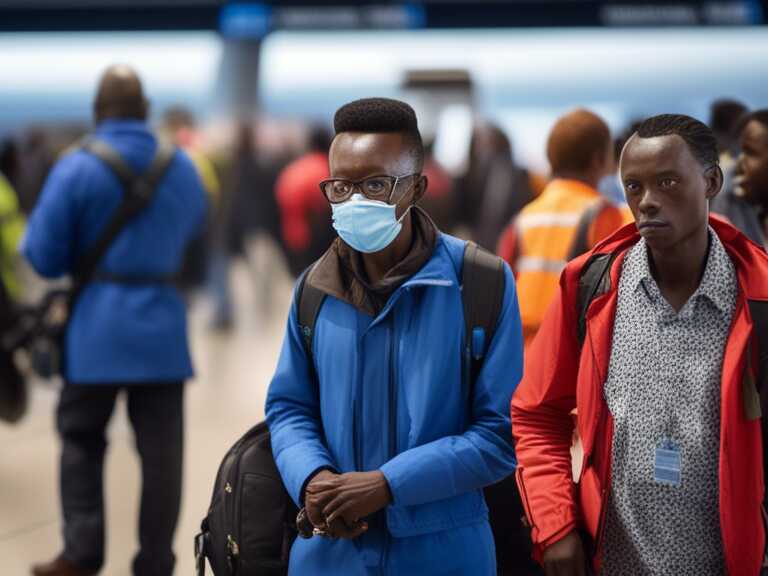
U.S. to Screen Passengers from Rwanda for Marburg Virus Amid Outbreak Concerns
U.S. to screen passengers from Rwanda for Marburg virus symptoms due to recent outbreak; screenings begin mid-October.

In a proactive measure to thiwart the spread of the Marburg virus, U.S. health officials are set to implement screening procedures for passengers arriving from Rwanda. The Marburg virus, a severe infection akin to Ebola, poses a significant health risk, prompting the Centers for Disease Control and Prevention (CDC) to take immediate action.
New Screening Measures
Beginning mid-October, travelers who have been in Rwanda within the last 21 days will have their flights rerouted to one of three designated airports: Chicago O’Hare, JFK in New York, and Washington Dulles in suburban Virginia. This decision, announced by the CDC in a statement Monday, aims to facilitate thorough screening procedures for incoming passengers.
Upon arrival at these airports, passengers will be required to undergo temperature checks and assessments for any visible symptoms, including sore throat, vomiting, or rashes, particularly those that may appear on the torso. The CDC emphasizes that individuals infected with the marburg virus can exhibit symptoms ranging from two to 21 days after exposure.
Understanding the Marburg Virus
The Marburg virus, known for its ability to cause hemorrhagic fevers and internal bleeding, shares similarities with Ebola. Both viruses transmit through contact with bodily fluids, including blood and semen, underscoring the critical need for vigilant screening and preventive measures. Notably, there is currently no established treatment or vaccine for the Marburg virus.
Current Situation in Rwanda
As of Sunday, Rwandan health officials have reported a total of 49 cases of the Marburg virus, as per information from the U.S. Department of Health and Human Services. Alarmingly, at least 12 individuals, constituting nearly a quarter of the cases, have succumbed to the virus. The World Health Organization indicates that the death rate may reach as high as 88%. Among the reported cases, nineteen have involved healthcare workers, highlighting the heightened risk in the medical community.
Public Health Advisory
In light of the situation, the CDC has issued a level 3 travel health notice, strongly advising against non-essential travel to Rwanda. The advisory underscores the importance of vigilance for symptoms for a duration of 21 days for individuals who must travel to the affected region. It further emphasizes the necessity of immediate isolation and seeking medical care upon experiencing fever, chills, headache, muscle aches, rash, chest pain, sore throat, nausea, vomiting, diarrhea, or unexplained bleeding or bruising.
Share news















